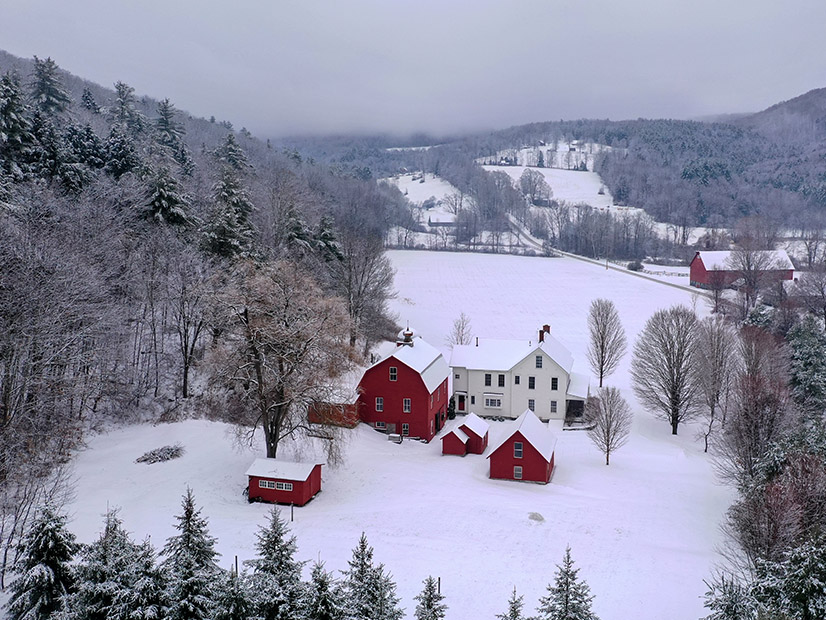
In the search for the right policies to decarbonize Vermont’s thermal sector, resilience and reliability should not be set aside, Vermont Climate Council member Jared Duval said Thursday.
Given the available technologies right now, heating for Vermonters cannot only be about carbon-neutrality if it’s to be equitable, he said. Clean heating options must focus on being “carbon-better or greenhouse-gas-better than the fossil alternatives.”
Duval, who also is executive director of the Energy Action Network, spoke during a Department of Public Service (DPS) meeting on thermal sector considerations for the state’s comprehensive energy plan update due in January. The plan needs to align with Vermont’s first climate action plan, which is due from the council in December.
“We want to be promoting and creating space for backup and supplemental heating systems rather than talking about one-size-fits-all or one technology as the primary solution,” he said.
With many homes in Vermont unable to effectively and reliably depend on heat pumps alone, he added, the state needs flexibility in fuel options for supplemental heating systems.
Fuel Options
Reaching the state’s climate goals for buildings will require partnerships that drive innovation in clean heating, Dylan Giambatista, who works on public affairs for Vermont Gas Systems (VGS), said during the meeting.
VGS, which is the only natural gas distributor in Vermont, plans to increase its renewable natural gas (RNG) supply 20% by 2030, but Giambatista said the company also wants to build out a “clean heat portfolio.”
Thermal sector policies and regulations, he added, should be inclusive in terms of energy sources and opportunities, such as green hydrogen and district energy.
Biodiesel also could be a viable option for heating in the state, based on the activities of other Northeast states, Michael Trunzo, director of government affairs at Shenker Russo & Clark, said during the meeting.
Oil heat marketers in Massachusetts, for example, are delivering close to 50% biodiesel blends to some of their customers, he said, speaking as a representative of the National Biodiesel Board. Connecticut and Rhode Island have codified their biodiesel mandates, he said, and a bill passed by New York legislators for a 20% biodiesel mandate is awaiting the governor’s signature.
As of 2018, fuel oil accounted for 29% of Vermont’s heating energy sources, while RNG and biodiesel accounted for 0.7%, according to the Energy Action Network’s Annual Progress Report for Vermont, 2020-2021.
With 1.8 billion gallons of biodiesel moving into the Northeast largely from the Midwest, and little regional production, according to Trunzo, Vermont would benefit from considering a regional approach to biodiesel supply. Biodiesel has a future, he said, adding that it could help fuel suppliers comply with a clean heat standard (CHS), if the state were to adopt one.
The Vermont Climate Council’s Cross-sector Mitigation Subcommittee included a CHS in its initial action plan recommendations to the full council last month. As proposed, the standard would cap emissions and require fossil fuel heating providers to purchase clean heat credits for their emissions. But they also earn credit for emissions reductions achieved by helping their customers convert to clean technologies.
That’s an approach that Matt Cota, executive director of the Vermont Fuel Dealers Association, said makes a lot of sense for dealers. In Vermont, he said, fuel dealers do more than just deliver fossil fuel. They deliver biofuel and are “in the home, doing a multitude of services,” such as installing heat pumps.
Next Steps
DPS will hold another public meeting for the comprehensive energy plan update next week to discuss the transportation sector in collaboration with Climate Council members. A draft of the update will be released for public comment in October.


